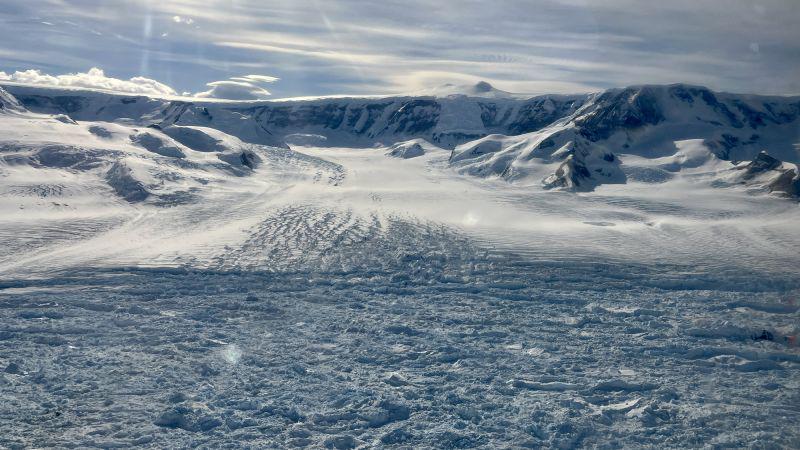
Antarctic glacier saw the fastest retreat in modern history; it could spell trouble for sea levels, report finds
https://www.cnn.com/2025/11/03/climate/antarctic-glacier-hektoria-rapid-melt-sea-level?utm_medium=social&utm_campaign=missions&utm_source=reddit
by cnn
6 comments
An Antarctic glacier [shrunk by nearly 50% in just two months](https://www.cnn.com/2025/11/03/climate/antarctic-glacier-hektoria-rapid-melt-sea-level?utm_medium=social&utm_campaign=missions&utm_source=reddit), the fastest retreat recorded in modern history, according to a new study — and the way it retreated could have big implications for global sea level rise.
The Hektoria Glacier, roughly the size of Philadelphia, is on the Antarctic Peninsula, a spindly chain of mountains sticking off the continent like a thumb pointing toward South America. It is one of the fastest warming regions on Earth.
Grounded glaciers like Hektoria, which rest on the seabed and don’t float, generally retreat no more than a few hundred meters a year. But between November and December 2022, Hektoria retreated by 5 miles, according to the [study](https://www.nature.com/articles/s41561-025-01802-4) published Monday in the journal Nature Geoscience.
“This is astonishing; the rate of retreat is just crazy,” said Ted Scambos, a study author and senior research scientist for the Earth Science and Observation Center at the University of Colorado Boulder.
Understanding more about why this happened is vital; if larger glaciers retreat at similar rates, it could have “catastrophic implications for sea level rise,” the authors wrote in a statement accompanying the report. Antarctica holds enough ice to raise global sea level by [around 190 feet](https://sealevel.nasa.gov/news/266/how-ice-shelf-loss-drives-sea-level-rise/).
We have also just had, in Sept/Oct, a [‘Sudden 30c temperature rise over Antarctica’](https://www.abc.net.au/news/2025-09-26/weather-pattern-could-disrupt-australia-for-months/105817572) in an unforeseen stratospheric warming event that has resulted in Spring being haywire for all us southern hemisphere countries. And now this…
Good God
50-70x annual average is one hell of an outlier. Here’s hoping it remains an outlier rather than a harbinger of a new normal.
Fake
Hektoria Glacier was 295 sq km prior to it’s collapse. Another Antarctic glacier, the Thwaites, is grounded similarly, is also somewhat held back by an ice shelf, is also rapidly thinning, and it’s flow is also speeding up. The main difference between Hektoria and Thwaites is their sizes. Thwaites is roughly the size of Florida or about 192,000 sq km and it’s estimated will cause over 2 feet of sea level rise globally.
Prior to what happened with the Hektoria Glacier it was thought that the collapse of the Thwaites would take hundreds of years but if it calves and retreats at the same rate as Hektoria, it would take about 5-10 years.
And there’s a lot of other similar glaciers around the world as well. This is just plain scary.
Could?
Comments are closed.